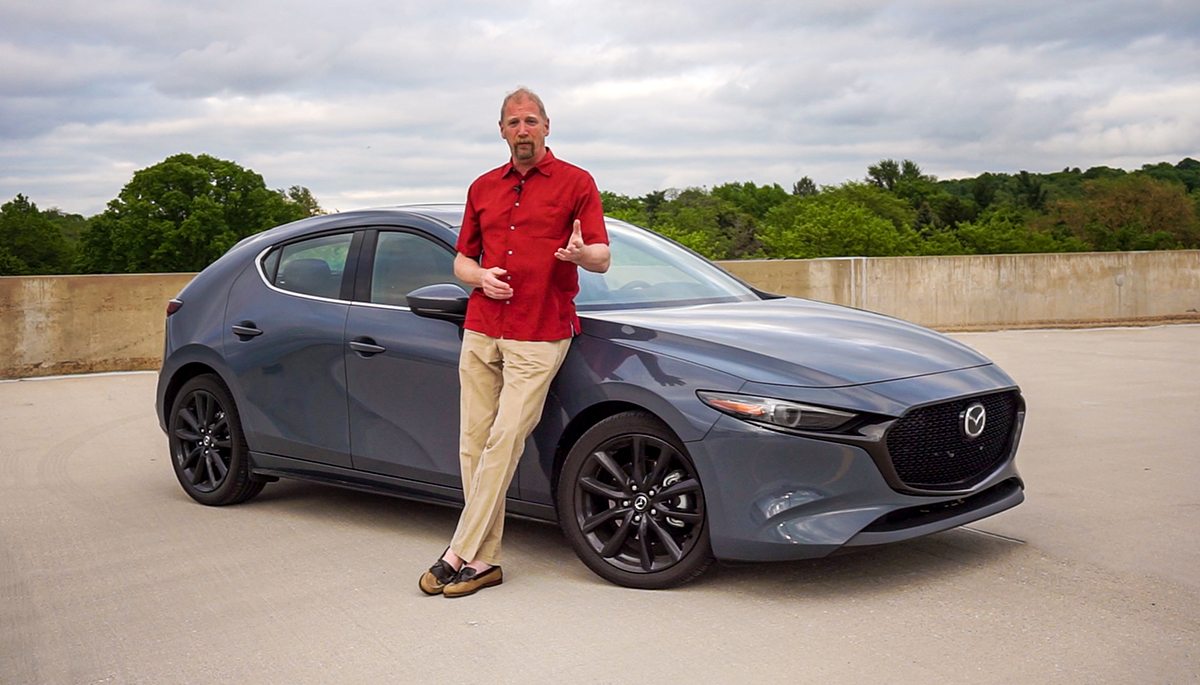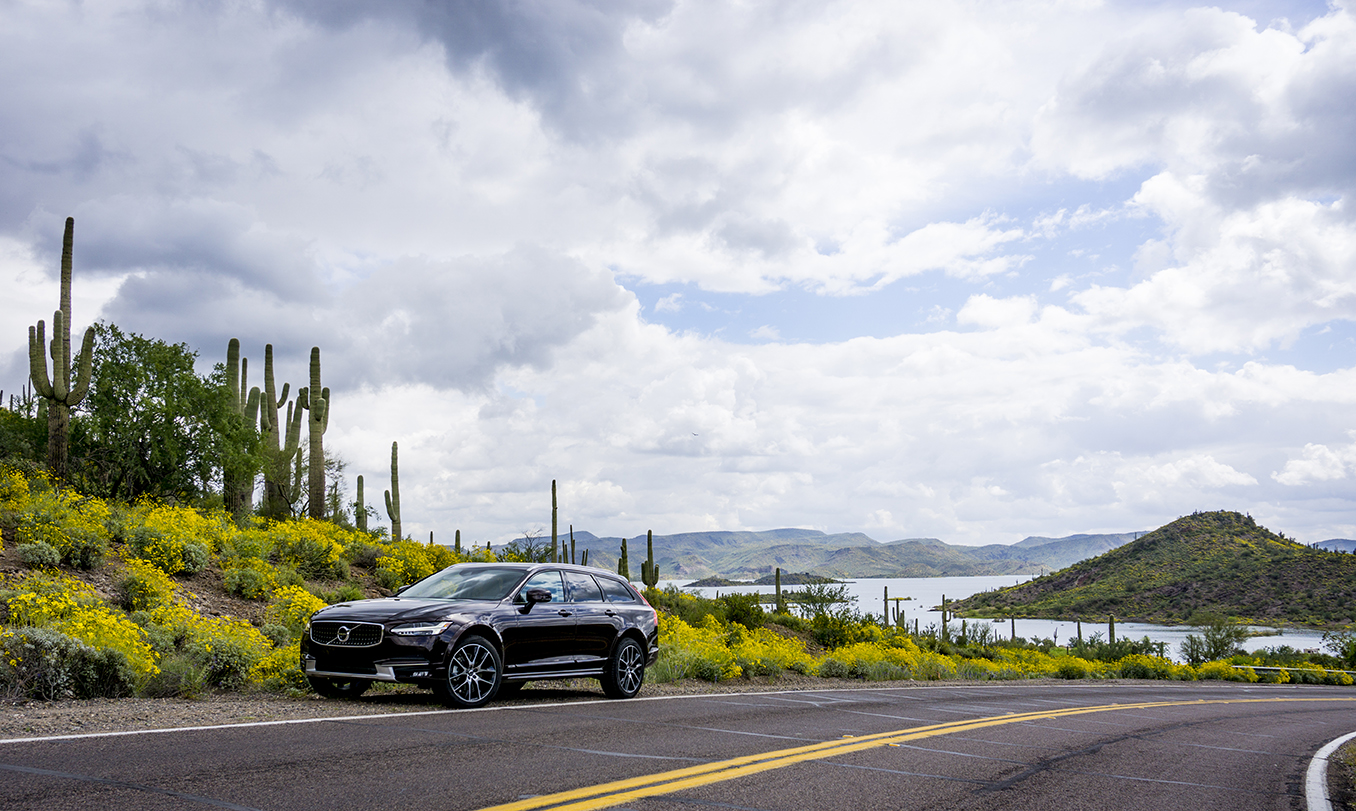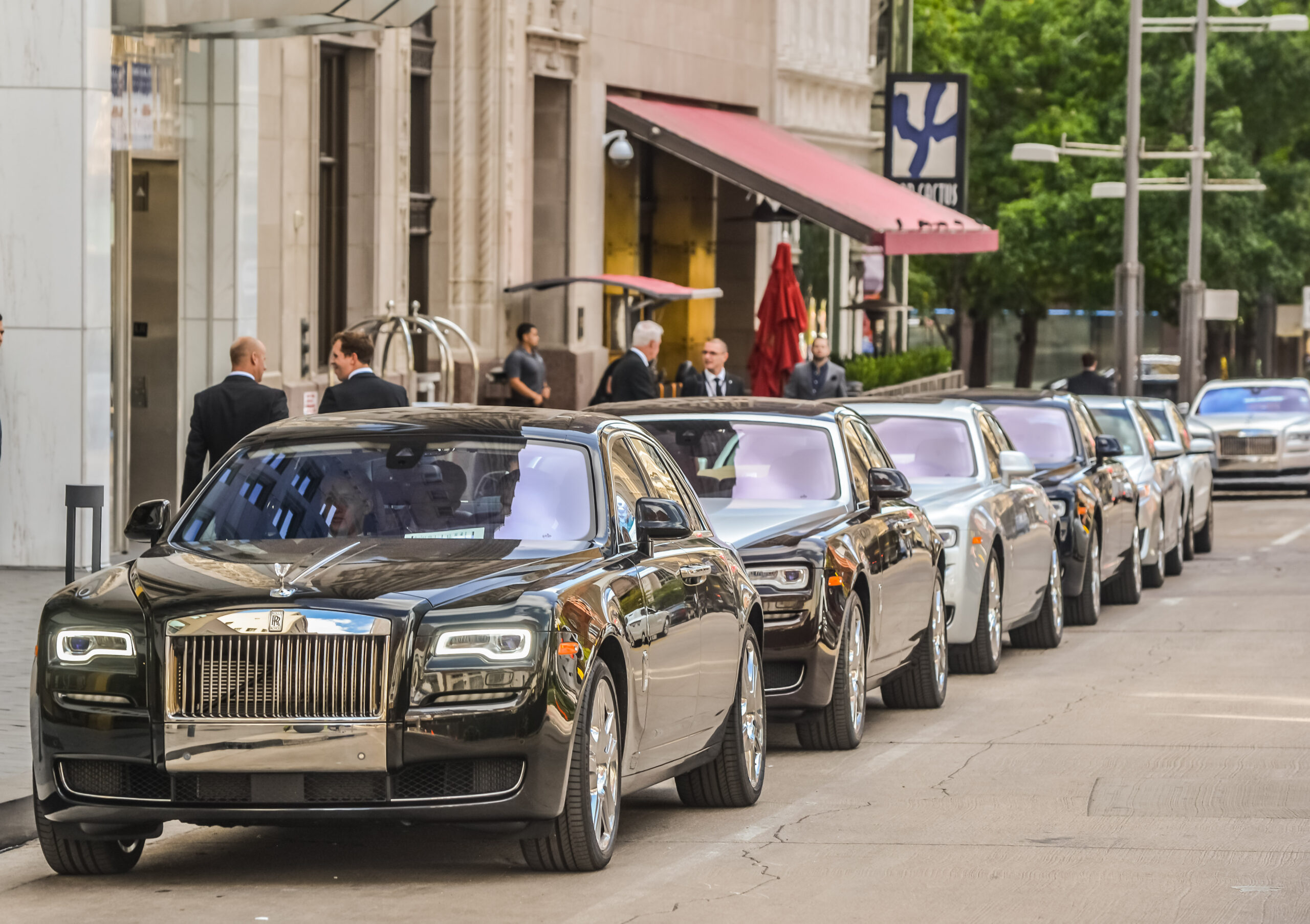Driven: 2017 Genesis G90 Ultimate, Luxury for Less
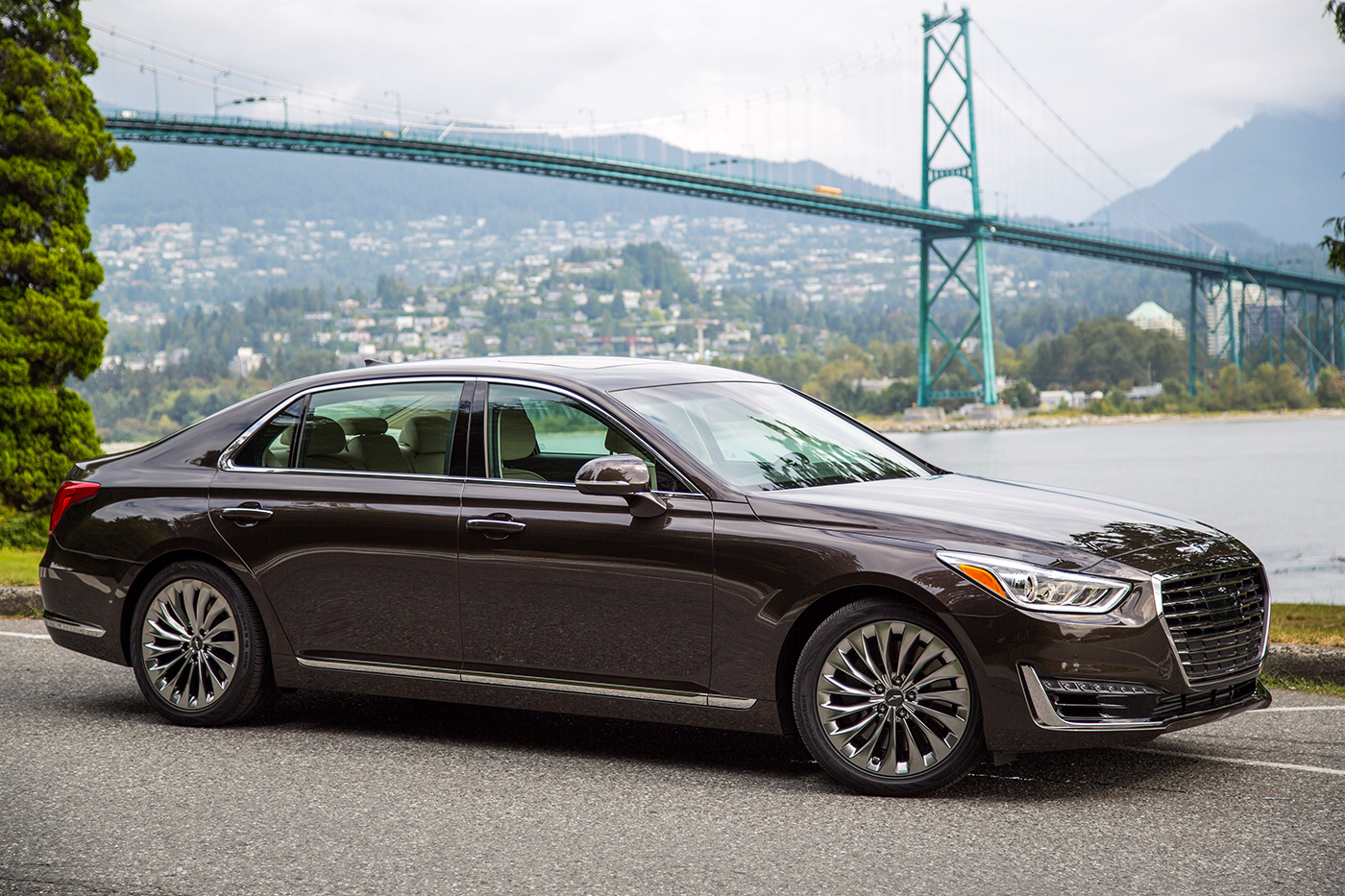
Black is white. Up is down. Right is wrong. And, the Koreans may have just built a luxury sedan that’s a worthy competitor to the best from Germany, Japan, and the United States.
Crazy, right?
Hyundai, not content to just sell cars that compete with mainstream brands, last year launched Genesis. It’s not just a new luxury car, but a new luxury car brand designed to compete with BMW, Mercedes, Audi, Lexus, and Lincoln. This is the first new luxury car company to hit the road since Lexus was introduced in 1989, which makes it significant.
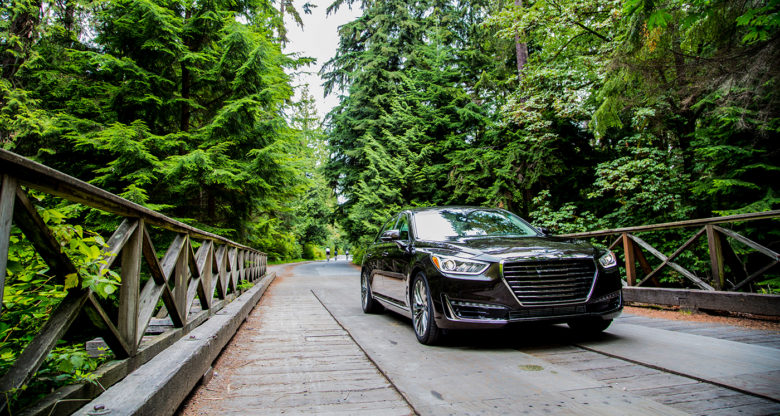
A company is only as good as the products it makes so there’s one question we must ask, is the Genesis G90 – the new product in their current two-car range – good enough to compete in a class where good enough, just won’t cut it?
The 7 Series, S Class, LS, CT6, and Continental are all really good in their own way. The BMW leans on technology, new materials, and performance to differentiate itself. The Mercedes-Benz tilts a little more toward pure luxury, with jewel-like accents and details complementing a car that’s solid and quiet. Lexus is in the process of launching a new LS, so we’ll see where it’s headed soon, but the current model sets itself apart on its ability to complete its mission with absolutely no drama. The CT6 is daring in style, construction, and powertrain technology, while Lincoln is a throwback to classic American luxury but with build quality and vehicle dynamics we’ve never seem from them before.
So where does that leave Genesis? Though their executives may argue, its position – like that of its sister brand Hyundai – is essentially, “Everything the other guys give you, for a little bit less.”
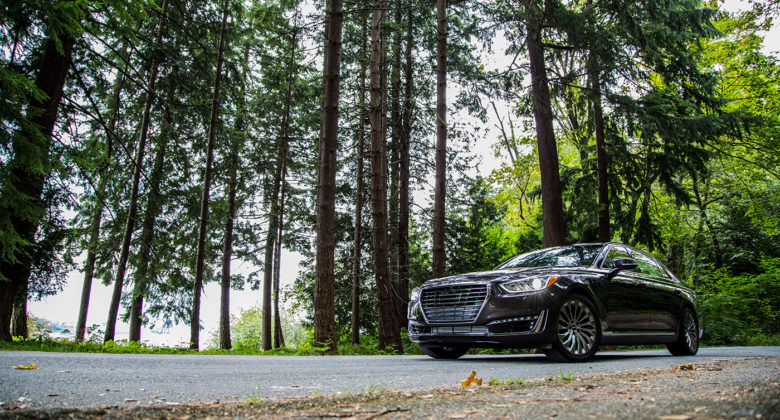
The G90 is available in two trim levels, Premium and Ultimate. The big differentiator is the engine. The G90 Premium sports a twin-turbo V6 that makes 365 horsepower. The G90 Ultimate stuffs a 420 horsepower naturally aspirated V8 under the hood and adds some additional luxury features for the rear passenger compartment including power adjustments and ventilation for the seats, fancier headrests, and illuminated vanity mirrors. You also get full LED headlamps. In the Premium edition you’ll have to settle for dynamic bending Bi-Xenon lamps and non-reclining rear seats. Otherwise both cars come loaded.
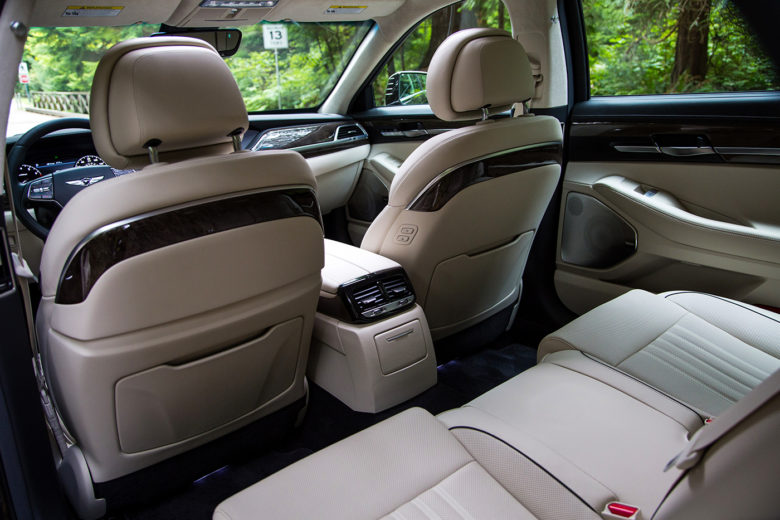
In fact, the only option available with either package is all-wheel drive, otherwise the standard configuration has the power going to the rear wheels. There are no upcharges for special interior or exterior colors. No additional fees for navigation or satellite radio. You want Nappa leather seats, dash, and door trim? That’s standard. You want 22-way power driver’s seat with heating, ventilation and massage? It’s in there. Heated steering wheel? Included. You want to control the HVAC and audio systems from the rear seat? Done.
More importantly, the standard features are not executed at the bare minimum. The infotainment system features a massive 12.3-inch touch screen. You get three years of SiriusXM with traffic and travel link. The audio system is a Harman Kardon Lexicon set up with 17 speakers and a 900W amplifier that uses Quantum Logic surround sound and Clarify restoration technology to make low res MP3 files sound better. You get a four-color head-up display, wireless phone charging, seven color adjustable LED ambient lighting, and 3-zone automatic climate control with a CO2 sensor. Actually to say the G90 is loaded is like saying Donald Trump’s New York Penthouse is trimmed in gold.
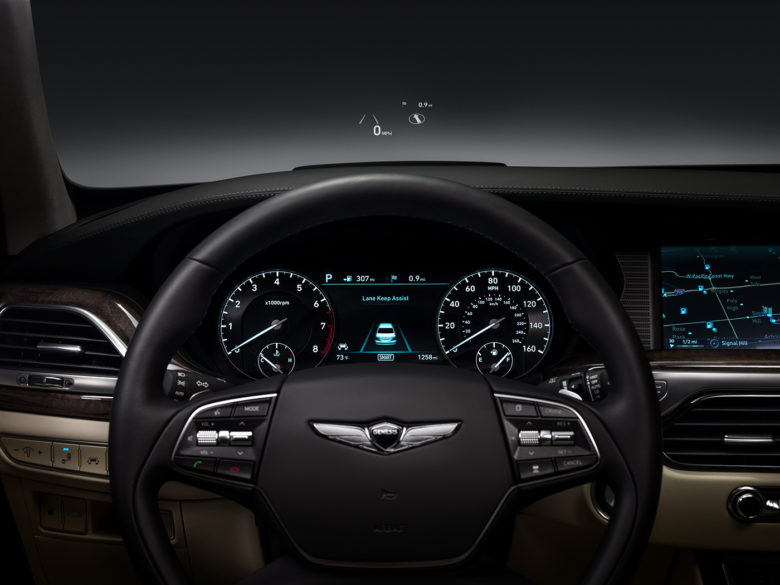
The amenities don’t end at creature comforts. The G90 includes as standard every safety feature you get in the current crop of luxo-barges: Forward collision warning, automatic emergency braking with pedestrian detection, adaptive cruise control with start/stop, lane keep assist and departure warning, 360º surround camera, blind spot detection with cross traffic alert, and all the other passive safety features you’ve come to expect.
But as we know, features don’t differentiate products anymore, it’s how those features are executed that matters. How they come together as a whole car. How they work when you’re on the road. How the entire package makes you feel. And the only way to find that out is to drive it.
So I did. Twice.
The first time was back in August. Genesis invited me to a launch event in Vancouver, B.C., Canada to drive the G90 about 250 miles to the incredible Sparkling Hill Resort in Kelowna. (quick aside: if you’ve never been to Kelowna, B.C., go. It’s beautiful) The drive included traffic choked city streets, limited access 4-lane highways, sweeping two-lanes through rolling prairies, and twisting mountain roads. I spent plenty of time in the car both as a driver and a passenger and I can say without hesitation that it is a fine piece of machinery.
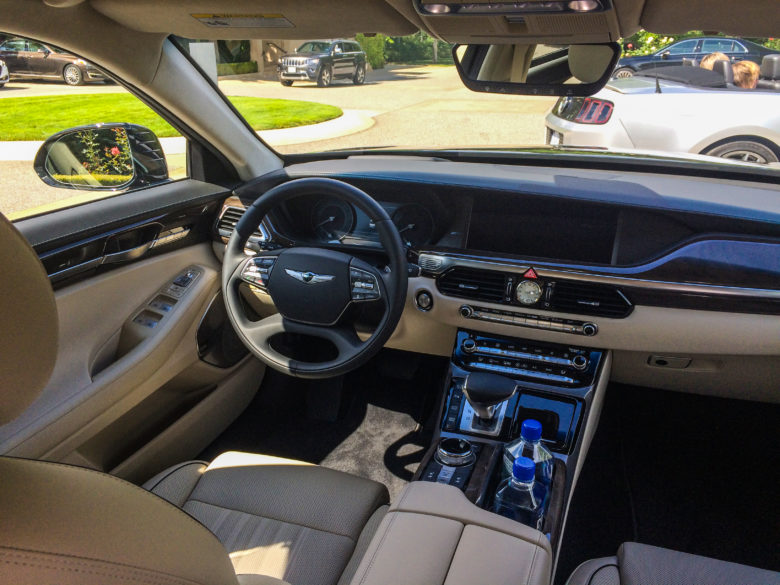
Both the V6 and V8 deliver as advertised, offering enough power to push the relatively heavy G90 up to speed on any on ramp. I say relatively heavy because its weight ranges from 4,630 pounds for the V6 RWD Premium to 4,905 pounds for the AWD V8-powered Ultimate. That’s about 300 pounds more than a comparably equipped LS460, 400 more than a Continental, 500 more than a 7 Series, and nearly 1,000 more than a Cadillac. Why is the G90 so heavy?
While other manufacturers are committed to new lightweight materials like aluminum and carbon fiber reinforced plastic under the skins of their cars, Genesis is sticking to steel, and there’s a very good reason for this. Hyundai is actually the oldest steel manufacturer in South Korea and it’s a wholly owned subsidiary of Hyundai Motor Group. So steel it is. And that’s not necessarily a bad thing.
What you lose in performance (it’s nearly half a second slower 0-60 than the BMW) and efficiency (17 mpg city/24 hwy vs 21/29 for the BMW) due to the extra weight, you gain in characteristics that are cherished in a full-size luxury car, just ask Rolls-Royce. The extra mass creates inertia which is part of the reason this car rides so well. It also helps cut down on road noise and vibration. All good things. So I came away from my first drive with a few questions about the choices that were made, but overall very impressed.
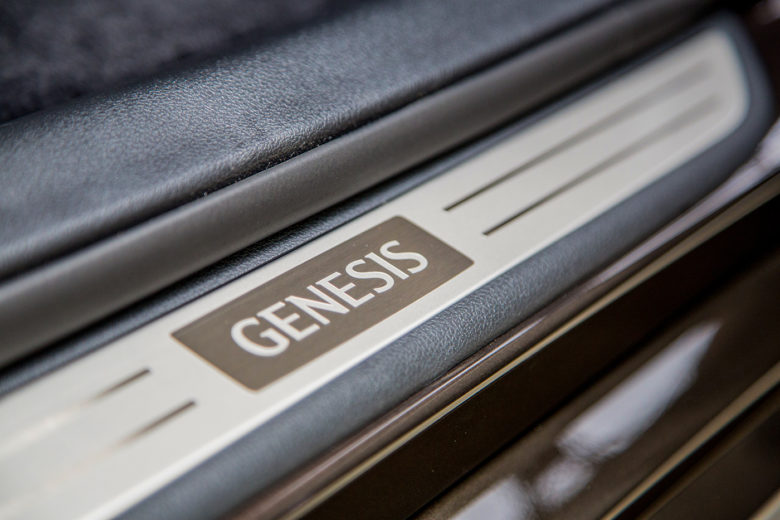
Fast forward to December and my second stint with the car, a four-day loan that included a drive from Madison to Ann Arbor and back – about 400 miles of freeway each way. I was able to take my time and get to know the car in a way you just can’t on a one-day drive event, no matter how well planned the route. You get to futz with the navigation, entertainment system, and driver assist features. You put friends in the back seat. You drive it on roads you’ve driven a thousand times before so you know how the car’s reacting to the surface. There’s no place for flaws to hide.
In the case of the G90, I’m pleased to report that very few were revealed. On the freeway, the car rode confidently and quietly. Moving through Chicago rush hour traffic, I set the adaptive cruise control to 55 and never touched the gas or brake until I came out the other side and wanted to speed up thanks to Indiana’s 70 mph limit. I did use the lane keep assist and lane departure warning and like these systems on other cars, I found them to be more annoying than useful. The technology is not advanced enough to keep the car centered without ping-ponging between the lane markers. It’s there in case you lose focus and prevent an accident, not to drive the car for you.
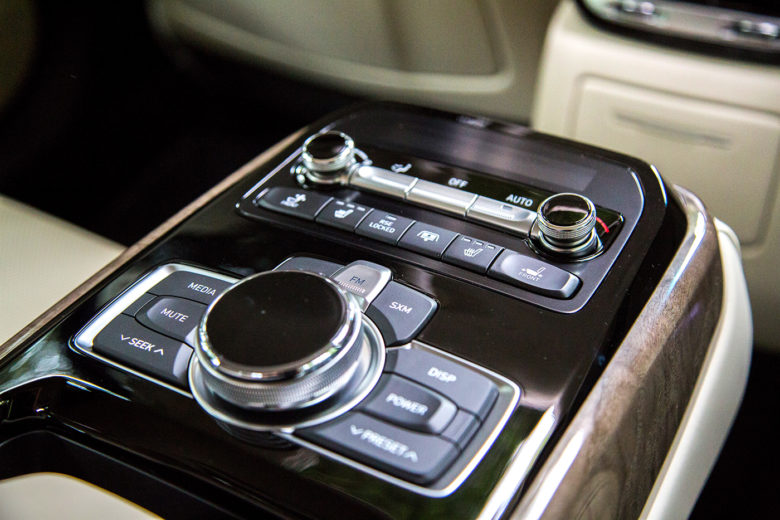
I am a big fan of the Genesis interfaces for the navigation, radio, and HVAC systems with their real buttons and dials. It’s so nice to use a system that understands the driver could be hurtling along at breakneck speed and it’s best not to take one’s eyes off the road. And the audio system sounds great. Put on your favorite tunes and crank it up, there’s no distortion even at high volumes.
From a performance and handling standpoint, the G90 plenty good. This isn’t a driver’s car, but it drives well. You won’t mistake it for an Alfa 4c or a Porsche 911, but it’s not a sloppy old boat like big cars of yore. The G90 rides on a fully independent multi-link suspension system with electronic damping control, and speed sensitive variable gear ratio steering. That means it soaks up imperfections in the pavement and is easy to turn at any speed. There’s a bit of body roll when you corner aggressively but that’s to be expected in a car with this much mass.
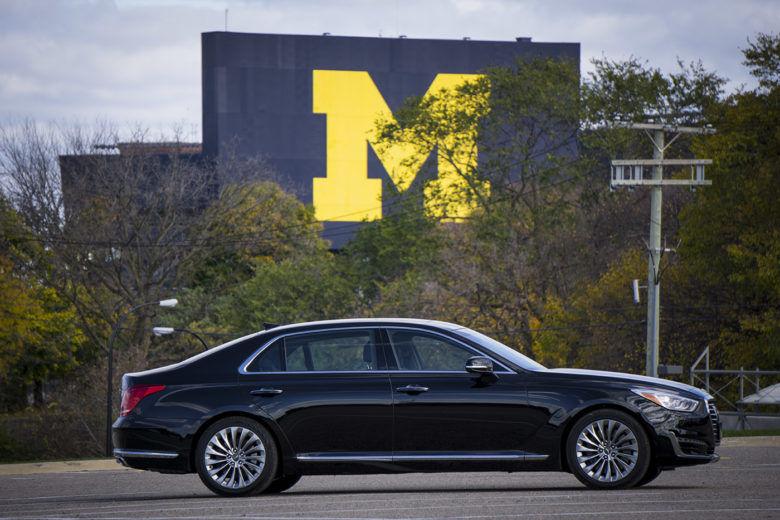
So what’s not to like about the G90 if you’re in the market for a full-size luxury sedan?
From a functional standpoint, not a whole lot. No, it doesn’t handle or perform as well as the 7 Series. And yes, it’s a little less efficient than most of the other cars in the category, but you’d have to drive a lot of miles for the cost of gas exceed the price differential with its more famous competitors. It does everything really well, but nothing differently. Even its look, while handsome, is somewhat derivative.
No, the only thing that’s missing from the Genesis G90 is the badge. Few will ever admit it, but in addition to comfort, many people buy cars in this category because of the statement it makes. Pull up to the club in a big Mercedes, BMW, or Cadillac and people nod knowingly. Pull up in a G90, and they probably don’t look at all. This is not a statement car, unless the statement you want to make is “I’m smart enough to know I don’t have to spend an extra $15,000 – $30,000 to get a great luxury sedan. And, I’m confident enough not to need the badge.”
2017 Genesis G90 Ultimate AWD
4-door, 5-passenger, full-size luxury sedan
Base price: $68,100
Price as tested: $72,200
Engine: 5.0 Liter V8
Transmission: 8-speed automatic with paddle-shifters
Power: 420 hp @ 6000 rpm
Torque: 383 lb.-ft. @ 5000 rpm
0-60: 5.5 est.
EPA MPG: 17 city/24 highway
While Genesis provided the vehicle and paid expenses on this trip, the opinions expressed in this article are ours alone.

